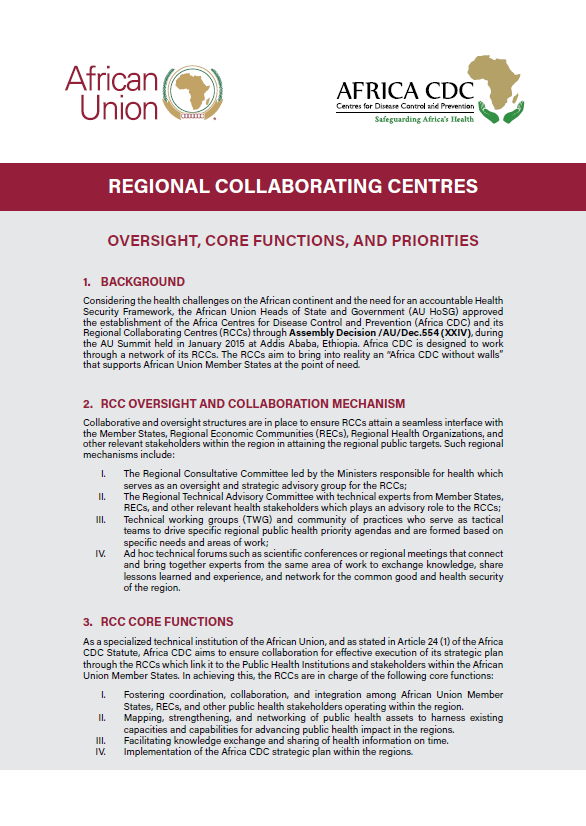1. BACKGROUND
Considering the health challenges on the African continent and the need for an accountable Health Security Framework, the African Union Heads of State and Government (AU HoSG) approved the establishment of the Africa Centres for Disease Control and Prevention (Africa CDC) and its Regional Collaborating Centres (RCCs) through Assembly Decision /AU/Dec.554 (XXIV), during the AU Summit held in January 2015 at Addis Ababa, Ethiopia. Africa CDC is designed to work through a network of its RCCs. The RCCs aim to bring into reality an “Africa CDC without walls” that supports African Union Member States at the point of need.
2. RCC OVERSIGHT AND COLLABORATION MECHANISM
Collaborative and oversight structures are in place to ensure RCCs attain a seamless interface with the Member States, Regional Economic Communities (RECs), Regional Health Organizations, and other relevant stakeholders within the region in attaining the regional public targets. Such regional mechanisms include:
I. The Regional Consultative Committee led by the Ministers responsible for health which serves as an oversight and strategic advisory group for the RCCs;
II. The Regional Technical Advisory Committee with technical experts from Member States, RECs, and other relevant health stakeholders which plays an advisory role to the RCCs;
III. Technical working groups (TWG) and community of practices who serve as tactical teams to drive specific regional public health priority agendas and are formed based on specific needs and areas of work;
IV. Ad hoc technical forums such as scientific conferences or regional meetings that connect and bring together experts from the same area of work to exchange knowledge, share lessons learned and experience, and network for the common good and health security of the region.
